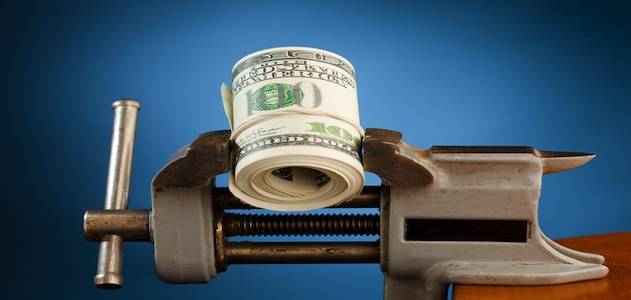Fixed mortgage rates fell for the third consecutive week, following a decline in consumer confidence and the onset of the government shutdown.
The 30-year, fixed-rate mortgage posted its lowest level since the week ending June 20. The 30-year, FRM came in at 4.22%, down from 4.32% last week, but up from 3.36% last year, Freddie Mac said in its Primary Mortgage Market Survey.
The 15-year, FRM decreased to 3.29%, down from 3.37% last week and a steep rebound from 2.69% last year.
Meanwhile, the 5-year Treasury-index adjustable-rate mortgage averaged 3.03%, down from 3.07% last week and an increase from 2.72% a year ago.
Additionally, the 1-year Treasury-index ARM came in at 2.63%, unchanged from last week, but down from 2.57% a year earlier.
"With the onset of the federal government shutdown and declining consumer confidence, fixed mortgage rates fell for the third consecutive week. Consumer sentiment fell for the second month in a row in September to its lowest reading since April, according to the University of Michigan," said Frank Nothaft, vice president and chief economist for Freddie Mac.
He added, "Moreover, a recent Bloomberg survey of professional forecasters suggests that a partial federal shutdown lasting one week would shave 0.1 percentage points off of GDP growth in the fourth quarter and even more if the shutdown lasts longer."
Bankrate data also showed mortgage rates falling for a fourth consecutive week.
Bankrate’s 30-year, FRM dropped to 4.41% from 4.47% a week earlier.
In addition, the 15-year, FRM decreased to 3.47%, down from 3.53%, while the 5/1 ARM dropped to 3.40% from 3.41%.
The government shutdown raised enough concern about the U.S. economy to push mortgage rates lower. However, the truly significant event will be the forthcoming deadline to increase the debt ceiling, explained Fannie Mae vice president for applied economics and housing research Mark Palim.
"You've got such uncertainty with the budget and the debt ceiling," he said.
Interest rates are continuing to drop because of a combination of factors, including economic data remaining tepid, which is pushing the Federal Reserve to continue its bond-buying program until members see the economy fully accelerate.
"Generally, coming out of a recession, you see a lot of acceleration, but we have not seen a large jump in jobs or the economy, so people are looking at the recovery and realizing it’s on a thin foundation," explained Quicken Loans chief economist Bob Walters.
He concluded, "That’s why the Federal Reserve is pushing the pedal to the medal on quantitative easing. The Fed, coupled with economic demand and debt ceiling uncertainty, has given people more cover to understand that the end of low rates is not upon us quite yet."




